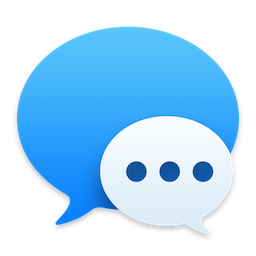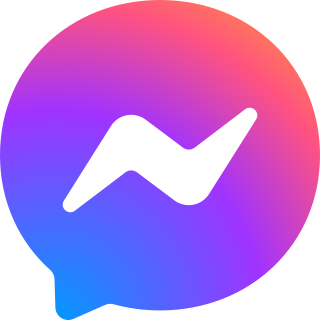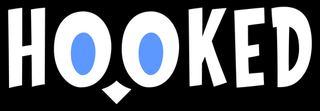Related Research Articles

Instant messaging (IM) technology is a type of online chat allowing real-time text transmission over the Internet or another computer network. Messages are typically transmitted between two or more parties, when each user inputs text and triggers a transmission to the recipient(s), who are all connected on a common network. It differs from email in that conversations over instant messaging happen in real-time. Most modern IM applications use push technology and also add other features such as emojis, file transfer, chatbots, voice over IP, or video chat capabilities.

Online chat may refer to any kind of communication over the Internet that offers a real-time transmission of text messages from sender to receiver. Chat messages are generally short in order to enable other participants to respond quickly. Thereby, a feeling similar to a spoken conversation is created, which distinguishes chatting from other text-based online communication forms such as Internet forums and email. Online chat may address point-to-point communications as well as multicast communications from one sender to many receivers and voice and video chat, or may be a feature of a web conferencing service.

Google Talk was an instant messaging service that provided both text and voice communication. The instant messaging service was variously referred to colloquially as Gchat, Gtalk, or Gmessage among its users.
A cell phone novel, or mobile phone novel, were literary works originally written on a cellular phone via text messaging. This type of literature originated in Japan, where it became a popular literary genre. However, its popularity also spread to other countries internationally, especially to China, United States, Germany, Italy and South Africa. Chapters usually consist of about 70–100 words each due to character limitations on cell phones.

Wattpad is a free online platform that allows users to read and publish original stories. In January 2021, Naver Corporation announced that it would be acquiring Wattpad; the deal was completed in May 2021. As of November 2021, Wattpad has a monthly audience of more than 90 million users, who can directly interact with the writers and share their opinions with fellow readers.
Kik Messenger, commonly called Kik, is a freeware instant messaging mobile app from the Canadian company Kik Interactive, available on iOS and Android operating systems.

iMessage is an instant messaging service developed by Apple Inc. and launched in 2011. iMessage functions exclusively on Apple platforms: macOS, iOS, iPadOS, and watchOS.
WeChat and Weixin are a Chinese instant messaging, social media, and mobile payment app developed by Tencent. First released in 2011, it became the world's largest standalone mobile app in 2018 with over 1 billion monthly active users. WeChat has been described as China's "app for everything" and a super-app because of its wide range of functions. WeChat provides text messaging, hold-to-talk voice messaging, broadcast (one-to-many) messaging, video conferencing, video games, mobile payment, sharing of photographs and videos and location sharing.

Messenger is an American proprietary instant messaging app and platform developed by Meta Platforms. Originally developed as Facebook Chat in 2008, the company revamped its messaging service in 2010, released standalone iOS and Android apps in 2011, and released standalone Facebook Portal hardware for Messenger calling in 2018. In April 2015, Facebook launched a dedicated website interface, Messenger.com, and separated the messaging functionality from the main Facebook app, allowing users to use the web interface or download one of the standalone apps. In April 2020, Facebook released a Messenger desktop app for Windows and macOS.

Prerna Gupta is an American serial entrepreneur focused on consumer entertainment. She currently is the CEO of Telepathic Inc., which developed the smartphone app Hooked. She cofounded several startups focusing on music, dating, and short-stories. In 2011, she was named one of the most influential women in technology by the Fast Company magazine.
Snapchat is an American multimedia instant messaging app and service developed by Snap Inc., originally Snapchat Inc. One of the principal features of Snapchat is that pictures and messages are usually only available for a short time before they become inaccessible to their recipients. The app has evolved from originally focusing on person-to-person photo sharing to presently featuring users' "Stories" of 24 hours of chronological content, along with "Discover", letting brands show ad-supported short-form content. It also allows users to store photos in a password-protected area called "my eyes only". It has also reportedly incorporated limited use of end-to-end encryption, with plans to broaden its use in the future.
Google Hangouts was a cross-platform instant messaging service developed by Google. It originally was a feature of Google+, becoming a standalone product in 2013, when Google also began integrating features from Google+ Messenger and Google Talk into Hangouts. Google then began integrating features of Google Voice, its Internet telephony product, into Hangouts, stating that Hangouts was designed to be "the future" of Voice.
Slack is an instant messaging program designed by Slack Technologies and owned by Salesforce. Although Slack was developed for professional and organizational communications, it has also been adopted as a community platform. Users can communicate with voice calls, video calls, text messaging, media, and files in private chats or as part of communities called "workspaces." Slack also uses IRC-style features such as persistent chat rooms (channels) organized by topic, private groups, and direct messaging. In addition to these online communication features, Slack can integrate with other software. Slack runs on Web, Windows, Linux, MacOS, Android, Windows Phone and iOS.

Hike Messenger, also known as Hike Sticker Chat, was an Indian freeware, cross-platform instant messaging (IM), and Voice over IP (VoIP) application that was launched on December 12, 2012, by Kavin Bharti Mittal and is now owned by Hike Private Limited. Hike worked offline through SMS and had multi-platform support. The app registration used a standard one-time password (OTP) based authentication process. Hike was estimated to be worth $1.4 billion, with more than 100 million registered users and 350.
Wire Swiss GmbH is a software company with headquarters in Zug, Switzerland. Its development center is in Berlin, Germany. The company is best known for its messaging application called Wire.

Google Spaces was a mobile app for group discussions and messaging developed by Google. The app was intended to compete with Slack as a content sharing platform where users can create a "space", invite their friends for discussion, and share videos, images, text, and other media. Google services such as the web browser Chrome, search engine Google Search, and video sharing platform YouTube were built into the app to allow users to source content from them. Google Spaces launched on May 16, 2016, available on Windows, Mac, Android, and iOS operating systems. The app was discontinued on April 17, 2017. The Spaces brand name was revived for a feature in Google Chat, formerly named Rooms.

Hooked is a mobile application where users create and read chat fiction, short pieces of fiction told in the format of text messages between fictional characters. The app was released in September 2015 and was developed by Telepathic Inc.
Comparison of user features of messaging platforms refers to a comparison of all the various user features of various electronic instant messaging platforms. This includes a wide variety of resources; it includes standalone apps, platforms within websites, computer software, and various internal functions available on specific devices, such as iMessage for iPhones.
Kumu is a Filipino video sharing and e-commerce social networking service owned and developed by Kumumedia Technologies, Inc. The social media platform is used to livestream curated programs created by app users and partner brands and as an e-commerce platform for app users and partner brands who want to sell their merchandise online. It was founded in 2017 and launched on Android and iOS devices in February 2018. Kumu caters mainly to the Philippine market and the Filipino diaspora. In October 2020, the app topped the download charts of both the Apple App Store and Google Play in the free apps category. The app aims to become a "super app" that combines the functionalities of other apps like YouTube, TikTok, Shopee, Instagram and Facebook Messenger into one. Kumu is considering adding offline events to its platform, such as fan meetings with popular livestreamers and a convention inspired by Comic-Con called Kumu-Con, and expand beyond livestreaming to e-commerce and payments.
References
- 1 2 Bereznak, Alyssa (27 April 2017). "Are Chat-Fiction Apps the New YA Novels?". The Ringer. Retrieved 2 June 2020.
- ↑ Hartmans, Avery (12 April 2017). "How to use Hooked, the highly addictive reading app topping the App Store right now". Business Insider. Retrieved 2 June 2020.
- ↑ Roof, Katie (14 June 2017). "The chat fiction apps that teens go crazy for". TechCrunch. Retrieved 2 June 2020.
- ↑ Park, Andrea (11 July 2017). "What are millennials reading? Chat fiction". CBS News. Retrieved 2 June 2020.
- ↑ Castillo, Michelle (21 May 2017). "Millions of millennials are reading six-minute horror stories told entirely in the form of text messages". CNBC. Retrieved 2 June 2020.
- ↑ Stone, Zara (22 March 2019). "The Hottest Way to Read Short Stories? With Chat Fiction". OZY. Retrieved 2 June 2020.